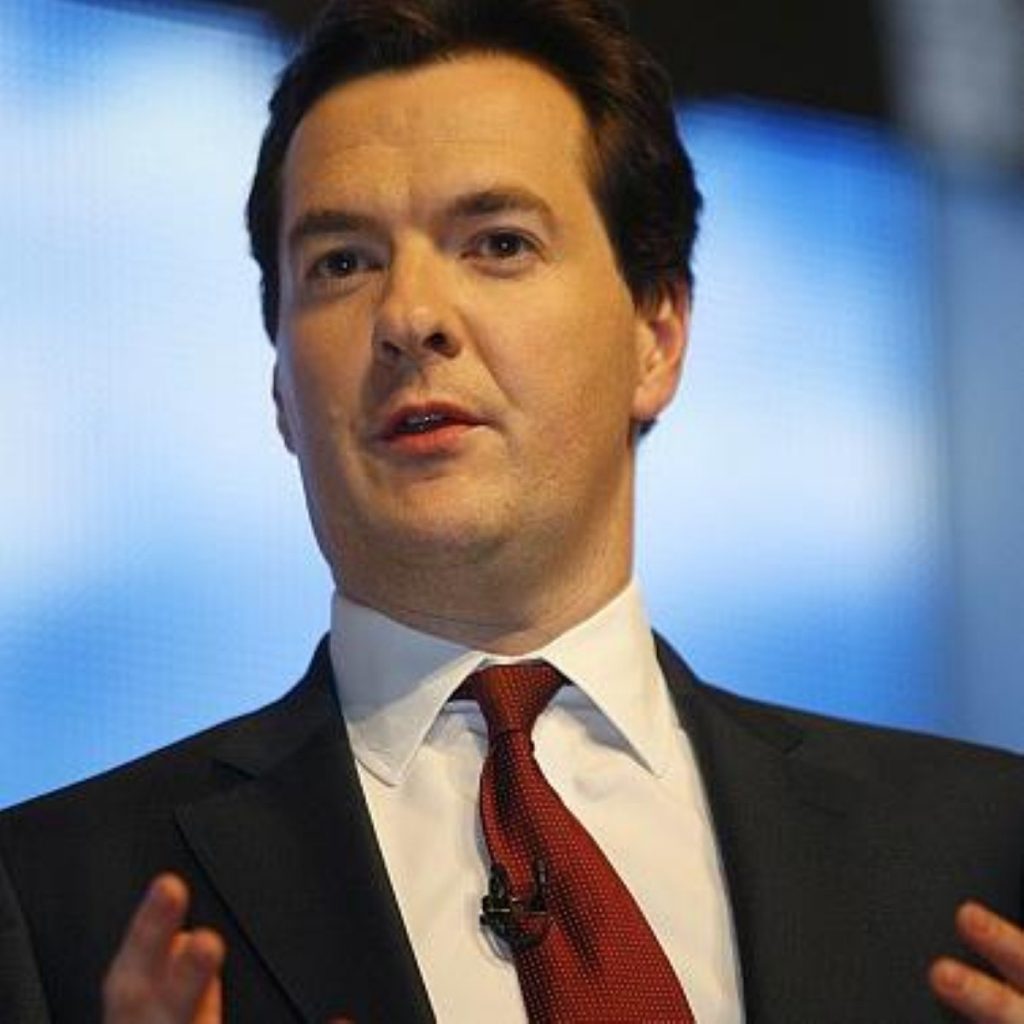Osborne suspicious of bigger banks
By Alex Stevenson
“Smaller banks” may be part of the Conservative solution to the banking crisis, George Osborne has suggested.
The shadow chancellor indicated his suspicion of banks which are “too big to bail” at a wide-ranging speech to the Royal Society of Arts in London this lunchtime.
“We cannot allow one part of our economy to behave in a way that puts the rest of the economy at risk when it fails,” he said.
Mr Osborne warned that the government would have difficult choices to make when the time comes to sell off its substantial shareholdings in banks like RBS and Lloyds TSB.
“We should look at whether Britain in fact needs smaller banks,” he added.
“For it would be a bitter irony if we came out of this crisis with a banking system that was even more concentrated and even riskier than the one we had before it.”
Much of the shadow chancellor’s speech was focused on implicitly rejecting Gordon Brown’s argument that the Tories are internationally isolated when it comes to solutions to the recession.
He cited numerous economists who backed his view that confidence in the free market as a whole should not be undermined because of recent setbacks.
“Markets can behave irrationally. The people who make up markets can behave irrationally. This isn’t a failure of capitalism, it is a feature of capitalism,” Mr Osborne argued.
“The issue is how do we design policies and systems of regulation that take this into account and anchor responsibility at the heart of our economy?”
Chancellor Alistair Darling will deliver the Budget on April 22nd as the economy continues to occupy centre-stage in British politics.
Mr Osborne said the Budget would “mark the collapse” of Gordon Brown’s strategy on dealing with the recession.
“There is a view emerging on the left is that the financial crisis is also a crisis of markets in general. In Britain, it is evidence of the shift from the centre ground we see taking place in the Labour party,” he added.
“I understand that the public feel disillusioned, betrayed and angry about financial markets. After all they spent a decade being told we had arrived at a financial nirvana of stability and growth, only to find it was just a fragile illusion of prosperity built on debt.
“But the view that this crisis heralds the end of market economics is profoundly mistaken. It needs to be confronted and defeated.”





-01.png)